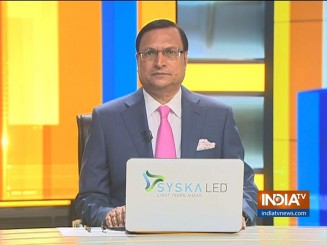 The swearing-in of Droupadi Murmu as India’s youngest and first tribal President marked, as what Prime Minister Narendra Modi described, “a watershed moment for India, especially for the poor, marginal and downtrodden.” She is the second woman to take over as President.
The swearing-in of Droupadi Murmu as India’s youngest and first tribal President marked, as what Prime Minister Narendra Modi described, “a watershed moment for India, especially for the poor, marginal and downtrodden.” She is the second woman to take over as President.
Her journey through life has been turbulent and incredible. Born in a tribal hamlet Uparbeda in Odisha’s tribal-dominated Mayurbhanj district, Droupadi’s original Santhali name was ‘Puti’, but her school teacher did not like the name and changed it in school records as ‘Droupadi’. Since childhood, the girl showed consistency and brilliance in studies, topped her class and became class monitor, though her village had no electricity. The school had classes only up to Class 8, and the future seemed to be dark for her.
The brave girl did not lose heart, met a local legislator, showed him her mark sheet, and the legislator got him admitted to a government school in Bhubaneswar. After finishing her High School, she got admission to Ramadevi Women’s College in Bhubaneswar and stayed in the college hostel. Her father used to send only Rs 10 per month for her personal expenses. After finishing her graduation, she got a job as an assistant clerk in the state government, and married a bank clerk. Soon after marriage, she had to leave her government job in order to take care of her offsprings. Later, she worked as a teacher in the Aurobindo school in Rairangpur, her home town.
Tragedies struck her, and she lost her husband and both her sons. Only her daughter gave her company. Droupadi joined the Brahmakumaris to regain her spiritual and mental balance, and then started social work to become a councillor in Rairangpur Notified Area Council. She was later elected MLA and in the same year, she became a minister in Chief Minister Naveen Patnaik’s cabinet, and later became the Governor of Jharkhand. This, in a nutshell, is how a tribal girl worked against all odds to overcome the challenges of life and become the nation’s first citizen.
On Monday, after taking oath as President, the gentle Droupadi Murmu took the podium in the Central Hall of Parliament, and in her speech, read fluently in Hindi, said how she started her political career in the 50th year of Independence, and was now taking up the nation’s highest seat in the 75th year of Independence, being celebrated as Amrit Utsav.
Wearing a hand-woven Santhali saree that her sister-in-law brought with her to Delhi, Droupadi Murmu audust the august gathering of Union Ministers, MPs, chief ministers and governors, and said: “It is a matter of great satisfaction for me that those who have been deprived for centuries and those who have been denied the benefits of development, those poor, downtrodden, backwards and tribals are seeing their reflection in me.”
“It is the power of India’s democracy that a girl born ina poor tribal home could reach the topmost constitutional post. That I attained the post of President is not my personal achievement. It is the achievement of every poor person in India. My election is proof that the poor in India can have dreams and fulfil them too.”
The 15th President said, the nation will have to move fast on the twin tracks of ‘sabka prayaas’ (everybody’s effort) and ‘sabka kartavya’ (everybody’s duty) to fulfil the expectations of people. On protecting environment, Murmu said, “I was born in that tribal tradition which has lived in harmony with nature for thousands of years. I have realised the importance of forests and water bodies in my life. We take our resources from nature and we have to serve nature with equal reverence. This has become a global imperative today”.
Droupadi Murmu is the first President who was born after India attained independence in 1947. Watching her speak fluently in Hindi, one gets the impression that she is articulate and confident. During the presidential election campaign, some opposition leaders had commented that Murmu cannot speak fluently, but her speech in Hindi belies their claims. She began her speech with ‘Johaar’, the traditional Santhali greeting, like ‘Namaskar’.
She ended her speech by reciting a line from the revered Odia saint and poet Bhima Bhoi : “Mo jibana pachhe narke padi thaau, Jagata uddhara heu”, which literally means, ‘even if my life stays in hell, I shall seek the betterment of this world.’ In her speech, Droupadi Murmu also recalled the great titans of India’s freedom struggle like Gandhi, Netaji, Nehru, Sardar Patel, Ambedkar, Bhagat Singh, Sukhdev, Rajguru and Chandrashekhar Azad, on one hand, and great women leaders like Rani Lakshmi Bai, Rani Velu Nachiyar, Rani Gaidinliu and Rani Chennamma on the other.
The election of Droupadi Murmu as India’s President has sent a clear message to the poor, downtrodden and tribals that even they can fulfil their dreams in our vibrant republic. It reflects the power of India’s democracy, and a moment of pride for every Indian.